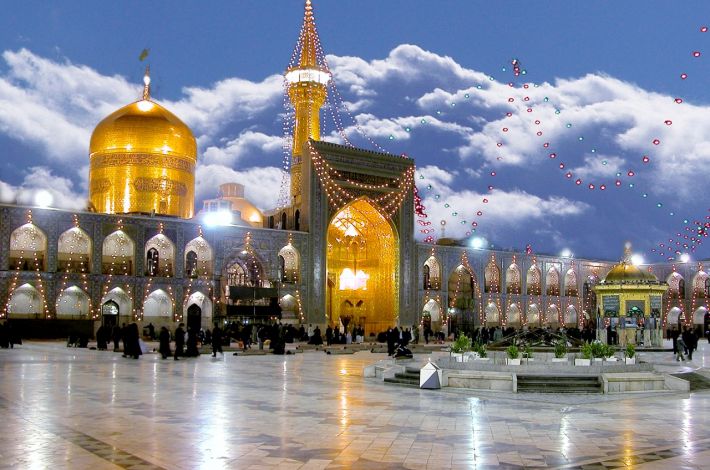Historical narratives indicate that al-Ma'mun’s call to Imam Reza (peace be upon him) was two years after his assumption of power, so he used to write the Imam (peace be upon him) and press him to accept the caliphate or at least the regency after him, but he refused him vigorously. He went on convincing the Imam for more than two months, but all his attempts came to nothing, for the Imam insisted on refusing him and refraining from undertaking any state office.
All the diplomatic ways which al-Ma’mun followed to convince the Imam, peace be on him, to accept regency came to an end, so he thought that he had to follow another way which was threatening the Imam. He sent for the Imam. When he was in his presence, a conversation took place between them, so the Imam said to him: “By Allah, I have never told a lie since my Lord, the Great and Almighty, has created me. I have not renounced the world for the world, and I definitely know what you want.”
“What do I want?” asked al-Ma’mun.
The Imam asked him for security if he said the truth frankly, saying: “The Imam (i.e. the leader) must be truthful, mustn’t he?”
“I have given you security,” replied al-Ma’mun.
The Imam explained the motives which urged al-Ma’mun to vest regency in him, saying: “Through that you want the people to say: ‘Surely ‘Ali b. Musa’ (ar-Redha’) has not renounced the world; rather it is the world which has renounced him. Do you not see that he has accepted regency and craved for the caliphate?’”
Al-Ma’mun became angry, so he shouted at the Imam, saying: “You always face me with what I hate! You have felt safe from my power! I swear by Allah, you should accept regency or I will force you to (accept) it! You should do that; otherwise, I will strike off your head!”
The Imam, peace be on him, pleaded to Allah and supplicated Him, saying: “O Allah, You have prohibited me from throwing my own soul into destruction; I have been forced; I am about to be killed by ‘Abd Allah al-Ma’mun if I do not accept regency! I have been forced just as Yusuf and Daniel, peace be on them, had been forced by the tyrant of their time to accept authority! O Allah, there is no covenant except Your covenant; nor have I a friend except You! So give me success to establish Your religion and to enliven the Sunna of Your Prophet, Muhammad, may Allah bless him and his family! Verily, You are the Master, and You are the Helper! You are the best Master, and You are the best Helper!”
Anyhow, the Imam accepted regency while he was weeping and sad. Pain and worries dominated him.
Al-Ma'mun aimed to several goals, including calming the turbulent situation and trying to legitimize his rule and authority, trying to restrict Imam ar-Redha (peace be upon him) and blocking him from his bases in Medina and Iraq, and working to weaken the opposition, especially Shiite ones.
But, the Imam mentioned before al-Ma’mun some conditions which showed that he was dissatisfied with regency and that he was forced to accept this office. These conditions are as follows:
- He would not appoint anyone as a governor.
- He would not dismiss anyone.
- He would not abolish any rite.
- He would be a distant adviser in the affairs of the state.
Yet al-Ma’mun accepted these conditions which clashed with his objectives and exposed his intentions.
Al-Ma’mun held a general popular festival attended by the ministers, the high-ranking statesmen, the commanders of the armed forces, and the rest of the people; at their head were the ‘Alawis and the ‘Abbasis.
Al-Ma’mun was seated and he had had two great cushions placed for Imam ar-Redha, so that he would have the same kind of seat and covers. He seated ar-Redha, peace be on him, on them; he was dressed in green and wearing a turban and a sword. Then al-Ma’mun ordered his son, al-‘Abbas, to be the first of the people to make the pledge of allegiance to him, and then the people pledged allegiance to him.
